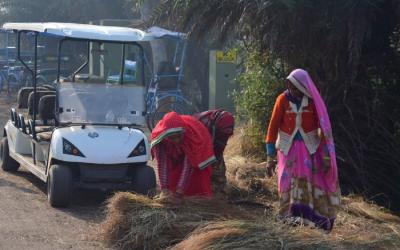ABSTRACT
Scientists all over the world are moving toward building database systems based on the One Health concept to prevent and manage outbreaks of zoonotic diseases. An appreciation of the process of discovery with incomplete information and a recognition of the role of observations gathered painstakingly by scientists in the field shows that simple databases will not be sufficient to build causal models of the complex relationships between human health and ecosystems. Rather, it is important also to build knowledge bases which complement databases using non-monotonic logic based artificial intelligence techniques, so that causal models can be improved as new, and sometimes contradictory, information is found from field studies.




